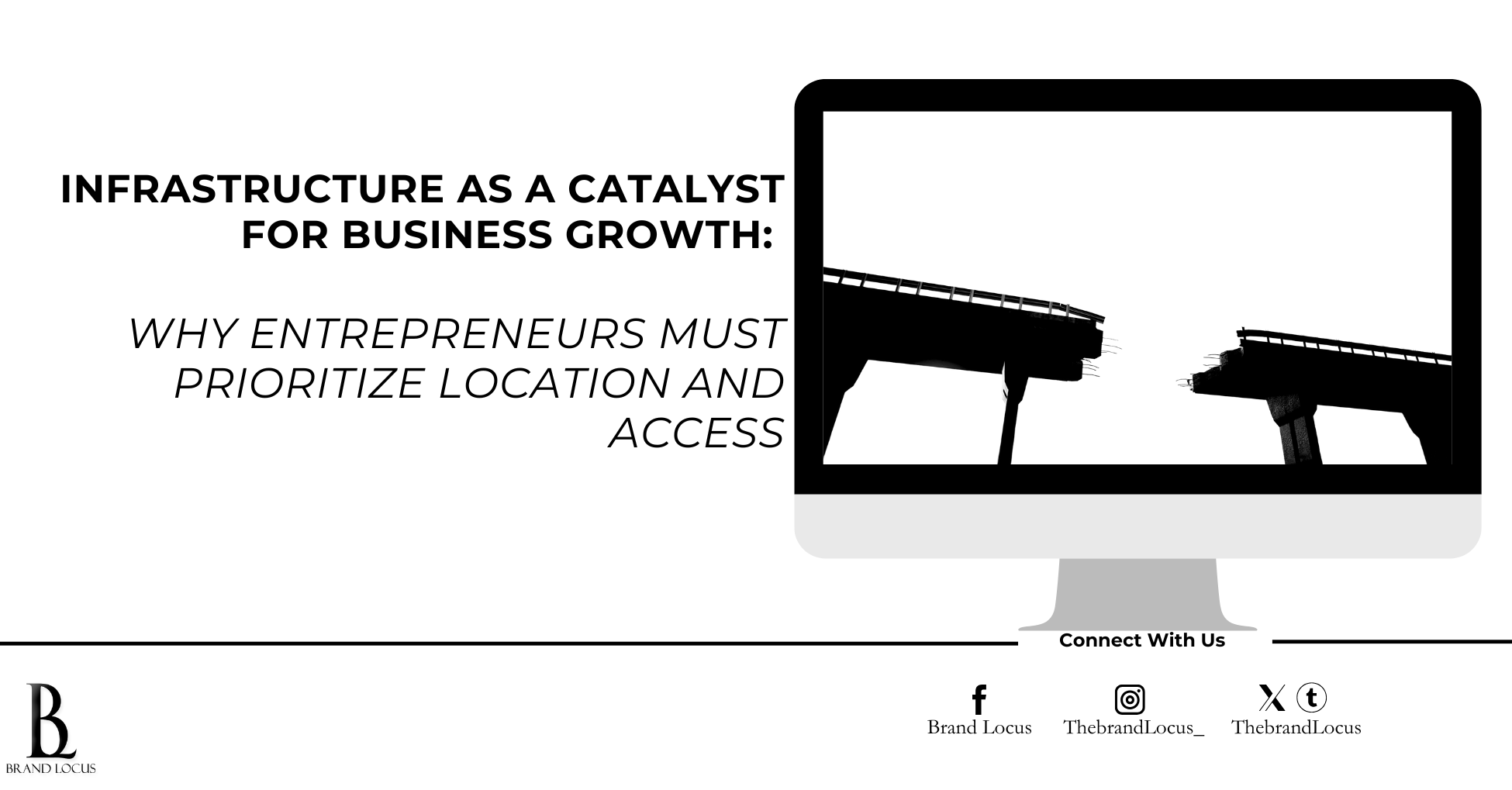The success of a business doesn’t solely depend on a great idea or product—it also hinges on critical external factors like infrastructure, location, and market access. Whether it’s the strategic placement of your retail store or ensuring smooth logistics for an e-commerce operation, infrastructure plays a pivotal role in scaling and sustaining any business.
The Infrastructure Advantage
Infrastructure encompasses the physical and organizational structures required for the functioning of a society, including roads, telecommunications, energy supply, and transportation systems. Here’s why it matters to entrepreneurs:

- Efficient Movement of Goods and Services: Businesses in well-connected locations can transport goods faster and more cost-effectively. This is crucial for industries like retail, manufacturing, and agriculture, where delays can impact customer satisfaction and spoilage costs.
- Enhanced Market Access: A robust infrastructure ensures businesses can reach their target audience effectively. Locations with better road networks, airports, and ports provide access to a broader customer base and support regional or international expansions.
- Operational Efficiency: Reliable power supply, internet connectivity, and water systems reduce downtime and increase productivity. For tech-driven or service-based businesses, this is non-negotiable.
- Investor Confidence: Well-developed infrastructure signals stability and growth potential. This is one reason global investors are increasingly interested in Africa, where infrastructure development is transforming the business landscape.
Why Location Matters
The age-old real estate adage, "Location, location, location," applies to business as well. Entrepreneurs must think critically about where they set up operations. Consider these factors:
- Customer Proximity: Are you close enough to your target market? Accessibility ensures better foot traffic and brand visibility.
- Supplier and Vendor Access: Proximity to suppliers reduces logistics costs and strengthens supply chain reliability.
- Competitor Landscape: While urban areas may be saturated with competitors, the infrastructure often makes it worthwhile. Evaluate how you can differentiate while benefiting from the area's connectivity.
Africa’s Growing Investment Appeal
Africa’s narrative is shifting, with infrastructure development attracting foreign investors. Projects like Alaro and snake Island in Lagos are unlocking new business opportunities. Entrepreneurs should align their ventures with these trends to stay ahead.
Key Considerations for Entrepreneurs
- Analyze Regional Infrastructure: Research the infrastructure of potential locations for your business. Tools like Google Maps and local business directories can offer insights.
- Leverage Urbanization Trends: Urban areas often have better-developed facilities but may come with higher costs. Strike a balance that aligns with your budget and goals.
- Partner with Reliable Service Providers: If your location lacks infrastructure, work with reliable logistics, power, or telecom providers to bridge the gap.
Build Your Foundation Right
For businesses to thrive, infrastructure and location are indispensable pillars. By focusing on these, entrepreneurs can enhance operational efficiency, scale sustainably, and attract customers and investors.
At Brand Locus, we specialize in helping businesses make informed decisions about market entry and strategic locations. Schedule a free session with us today to discover how we can guide your business toward the perfect location and infrastructure alignment.
